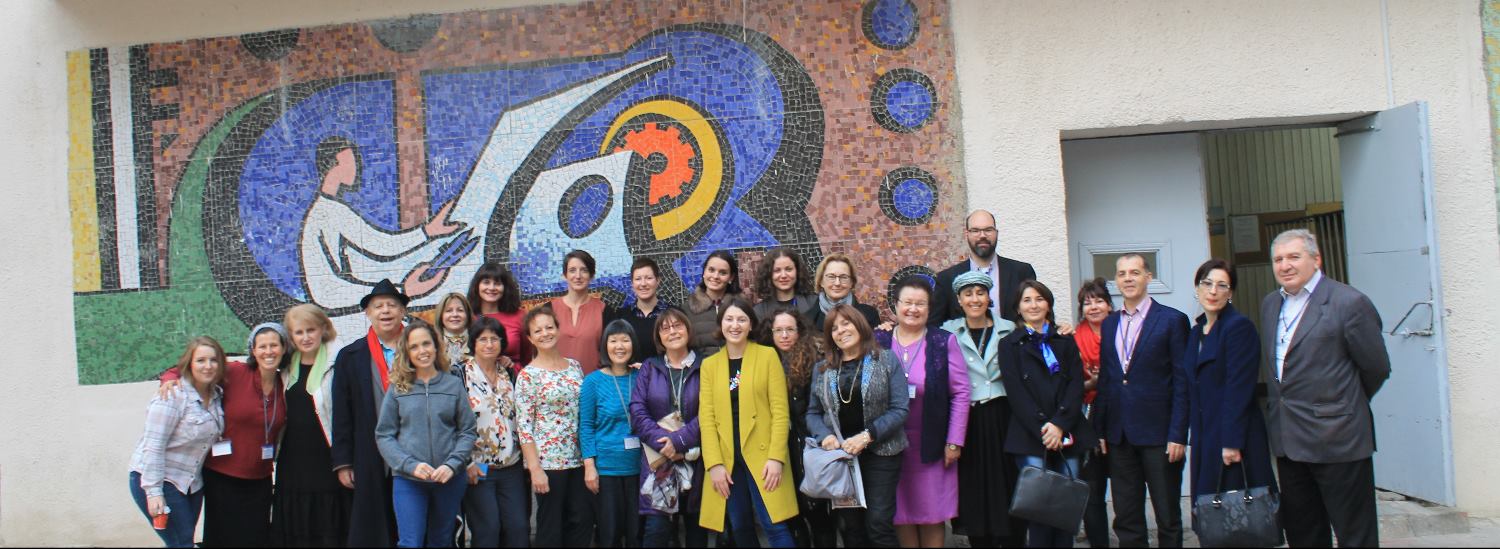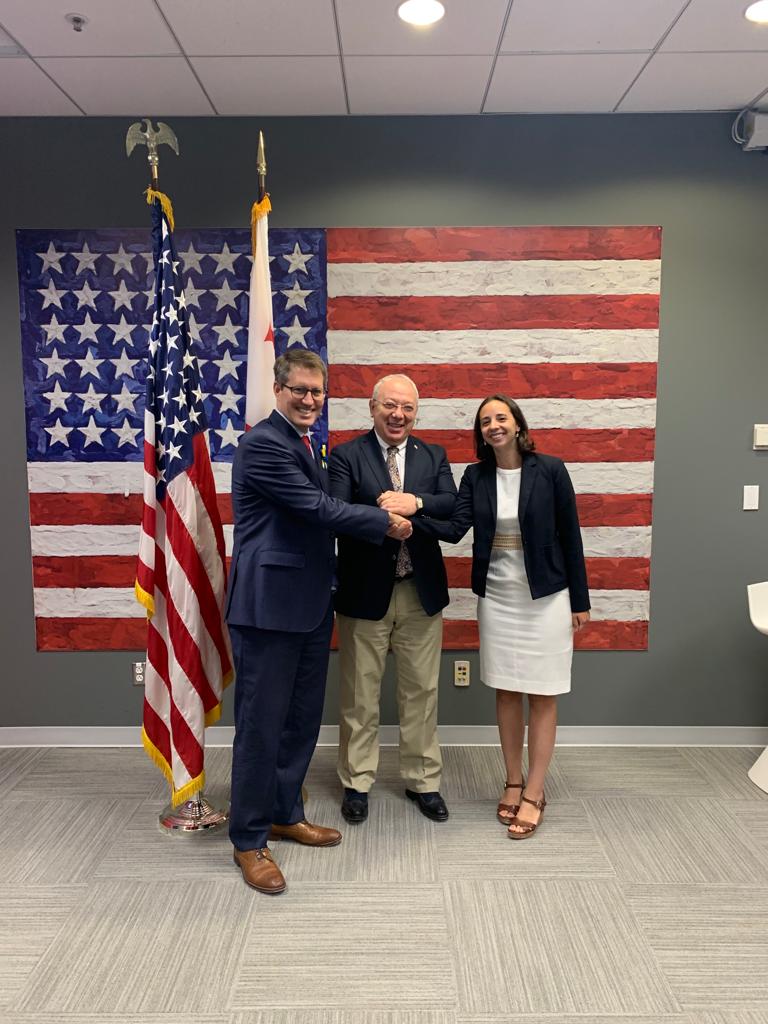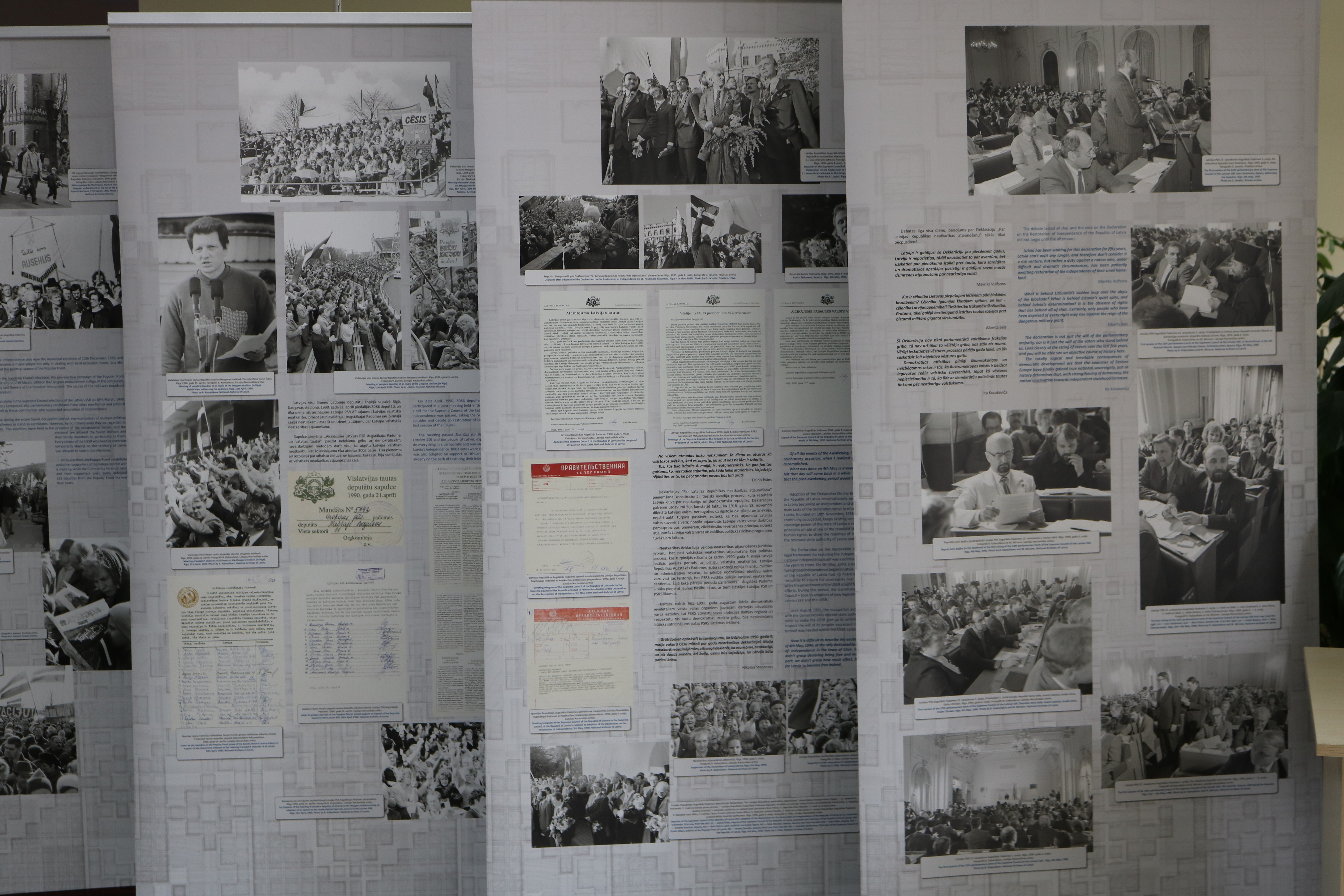
Erasmus + -ის პროექტის საერთაშორისო სამეცნიერო კონფერენცია ინკლუზიურ განათლებაზე
2017 წლის 20 ნოემბერს სოხუმის სახელმწიფო უნივერსიტეტში განათლებისა და მეცნიერების სამინისტროს
აქტიური ჩართულობით Erasmus + -ის საგრანტო
პროექტის DARE -ს მიერ ინიცირებული საერთაშორისო სამეცნიერო კონფერენცია გაიხსნა.
კონფერენციის თემა - „ინკლუზიური განათლება: კვლევა, სწავლა/სწავლება, სტუდენტური მხარდაჭერა“
- სპეციალურად იქნა შერჩეული პროექტის ხელმძღვანელების მიერ. კონფერენციის ორგანიზაბულად
ჩატარების მიზნით, 2017 წლის ზაფხულში შეიქმნა საერთაშორისო სამეცნიერო კოლეგია, რომელშიც საქართველოს განათლებისა და მეცნიერების
სამინისტროს, საქართველოს, ევროპისა და ისრაელის უნივერსიტეტების წარმომადგენლები
შევიდნენ.
კონფერენციის მუშაობაში
ჩაერთნენ პროექტის წევრი ისრაელის, ჩეხეთის,
რუმინეთის, ინგლისის, ლიტვის, საქართველოს უნივერსიტეტები, ასევე თემით დაინტერესებული ბელგიის, შვედეთის, აზერბაიჯანისა და მოლდოვას უნივერსიტეტები და სხვადასხვა ინსტიტუციები.
20 ნოემბერს კონფერენცია გახსნა სოხუმის სახელმწიფო უნივერსიტეტის რექტორმა ზურაბ ხონელიძემ,
რომელმაც ევროპისა და ისრაელის უნივერსიტეტების წარმომადგენლებს სპეციალური აუდიენცია
მოუწყო და ხაზი გაუსვა ინკლუზიური განათლების განვითარებისა და სსსმ სტუდენტთა, დევნილი
და სოციალურად დაუცველი სტუდენტების მხარდაჭერის სერვისების ჩამოყალიბების აუცილებლობას. რექტორმა ისაუბრა აფხაზეთში შექმნილ
რთულ ვითარებაზე და უცხოელი სტუმრების წინაშე ხაზი გასვა, რომ აფხაზეთი საქართველოს
განუყოფელი ნაწილია.
-
შეუძლებელია სოხუმის სახელმწიფო უნივერსიტეტზე აფხაზეთის გვერდის
ავლით საუბარი. იშვიათია დევნილებაში მყოფი
უნივერსიტეტი და სამწუხაროდ ამ უნივერსიტეტს ერგო ეს ბედი. ეს რეალობაა, მაგრამ ესა არის უდიდესი პასუხისმგებლობა და ტვირთი ქვეყნის და ზოგადად ცივილიზებული სამყაროს წინაშე. ჩვენთვის ეს დამატებითი
მოტივაციაა, იმისთვის რომ უნივერსიტეტი გახდეს
სრულფასოვანი კერა და შეიძინოს ისტორიული
მისია და როლი. აუცილებლად უნდა დავბრუნდეთ სოხუმში, ისტორიულ ქალაქში და ამ მიმართულებით
ჩვენ კონკრეტული ნაბიჯები გადავდგით. რამდენიმე
დღის წინ წარმოუდგენელი რამ მოვახერხეთ - დავამყარეთ ურთიერთობა აფხაზეთის უნივერსიტეტთან.
ყოველგვარი პოლიტიკისა და ჩარევის გარეშე აფხაზეთიდან
ჩამოვიყვანეთ აფხაზი ეროვნების ცამეტი სტუდენტი.
ისინი ოთხი დღის განმავლობაში ჩვენს სტუდენტებთან, ერთიან სივრცეში ცხოვრობდნენ.
ამით დაიწყო პროცესი, რომელიც გაგრძელდება
და რამდენიმე აფხაზი სტუდენტი ჩვენი სტუდენტი
გახდება. ჩვენი მიდგომა ასეთია: აფხაზი და ქართველი ეროვნების არცერთი ახალგაზრდა არ უნდა დავტოვოთ
კონფლიქტურ რეგიონში, იმ სივრცეში, სადაც ხვალინდელი დღის პერსპექტივა კითხვის ნიშნის
ქვეშაა. მინდა აღვადგინო ურთიერთობები და
აფხაზ სტუდენტებს ვაჩვენო თბილისი,
როგორც ცივილიზებულ სამყაროსთან მაკავშირებელი
ხიდი. ეს მათ ინტერესს მოემსახურება და ცოდნასთან
ერთად სხვადასხვა უნარ-ჩვევებსა და შეხედულებებს ჩამოუყალიბებს.
-
დღეს,
საერთაშორისო სამეცნიერო ფორუმის წარმომადგენლებს გიცხადებთ ნდობას და თქვენს წინაშე
ვაცხადებთ, რომ ჩვენ ვერ ვიქნებით მაყურებელი იმ პროცესისა, რომელიც აფხაზ ეთნოსს დაღუპავს და გააქრობს, ამიტომ ვაცხადებთ, აფხაზებისათვის ერთადერთი გადარჩენის გზა ქართულ სივრცეში რეინტეგრირებაა. ამისთვის გვჭირდება საერთაშორისო მხარდაჭერა, ინტერნაციონალიზაცია და
ინკლუზიური განათლება, რომელიც გარდა სსსმ
ახალგაზრდებისა, გულისხმობს ეროვნულ
უმცირესობათა განათლების საკითხების, მათთვის მხარდაჭერის სერვისების სრულყოფას.
საერთაშორისო ფორუმზე საქართველოში სოციალურად მოწყვლადი
ჯგუფებისა და ინკლუზიური განათლების შესახებ ფართო ანგარიში წარადგინეს განათლებისა და მეცნიერების
სამინისტროს წარმომადგენლებმა: უმაღლესი განათლებისა და მეცნიერების განვითარების დეპარტამენტის
უფროსმა ბატონმა ვალერიან გობრონიძემ და ინკლუზიური განათლების განვითარების სამმართველოს
უფროსმა ქალბატონმა ეკა დგებუაძემ. პლენარულ სხდომაზე საინტერესო მოხსენებები წარადგინეს
მიხალ შანმა (ხაიფას უნივერსიტეტი, ისრაელი),
ნათია გორგაძემ (გაეროს ბავშვთა ფონდი), ეკა დგებუაძემ (განათლებისა და მეცნიერების
სამინისტრო) და ნათია გორგაძემ (სამოქალაქო ინტეგრაციისა და ეროვნებათაშორისი ურთიერთობების
ცენტრი). პლენარული სხდომის ყველა მოხსენება მაღალ დონეზე შეაფასდა. გამოირჩეოდა სექციური მუშაობაც:
ინგლისურ და ქართულ ენებზე ერთდროულად სამი პარალელური სექცია მუშაობდა ინკლუზიური განათლების კვლევის, სწავლების, სტუდენტური
მხარდაჭერის სერვისებისა და მულტიკულტურული და ინტერკულტურული ურთიერთობების საკითხების
შესახებ. მომხსენებელთა შორის მნიშვნელოვანი იყო ჩეხეთიდან მასარიკის უნივერსიტეტის
(მარტინ ვრუბელი, ფილიპ აბრჰამი, დანა გუალა), ილიას სახელმწიფო უნივერსიტეტის (თინათინ
ჭინჭარაული, დავით მალაზონია და ნინო ჭიაბრიშვილი), კაუნასის ტექნოლოგიური უნივერსიტეტის
(პალმირა იუცევიციენე და ჯურგიტა ვიზგირდაიტე),
რუმინეთიდან იასის „იოან გუზას“ უნივერსიტეტი (ოვიდიუ გავრილოვიჩი), ბელგიის
არტეველდის უნივერსიტეტის (ნელლე პიერლეტი და ლობკე დობრე), შვედეთის უმაღლესი განათლების
საბჭოს (პიტერ ბარკ-ჰოლსტრი და ალესანდრა სჯოსთრანდი), ხაიფას უნივერსიტეტის (ჰანანა
ალექსანდერი და მიხალ შანი) ივ. ჯავახიშვილის სახელობის თბილისის სახელმწიფო უნივერსიტეტის
(ბელა პეტრიაშვილი, როზეტა გუჯეჯიანი), იაკობ გოგებაშვილის სახელობის თელავის სახელმწიფო
უნივერსიტეტის (თამარ ასლანიშვილი, სოფო არსენიშვილი, მარიამ ზაქარაშვილი, ანა გიგაური,
შორენა ძამუკაშვილი), სამცხე-ჯავახეთის სახელმწიფო უნივერსიტეტის (ირმა ქურდაძე), კორნელი
კეკელიძის სახელობის ხელნაწერთა ეროვნული ცენტრის (ირინა გოგონაია), აკაკი წერეთლის
სახელმწიფო უნივერსიტეტის (მაია ახვლედიანი, ნატო ქობულაძე, იაგორ ბალანჩივაძე) აზერბაიჯანის
სახელმწიფო პედაგოგიური უნივერსიტეტისა და ზაქათალის უნივერსიტეტების (ჯემალ არიხოვი, ნურალ ზარბალ ოღლი ჩალაბაევი),
გორის სახელმწიფო უნივერსიტეტის (ეკა გიგაშვილი), ბათუმის შოთა რუსთაველის სახელმწიფო
უნივერსიტეტის (ლელა თავდგირიძე) და მოლდავეთის არასამთავრობოთა ალიანსის (ლუდმილა
მალკოკი) წარმომადგენელთა მოხსენებები. კონფერენციაზე მოხსენებებით ფართოდ იყო წარმოდგენილი
სოხუმის სახელმწიფო უნივერსიტეტი (ლია ახალაძე, თამარ შინჯიაშვილი, თამარ ჯოჯუა, ლევან
ჯინჯიხაძე, ომარ არდაშელია, იზო ბუხულეიშვილი,
გულნაზ ხუხუა, ლელა რეხვიაშვილი, თამარ ჯავახიშვილი, რუსუდან ფიფია, ბროლისა წულაია, ინგა მორგოშია და
ნინო წულაია). სამწუხაროდ, კონფერენციას ვერ
დასწრო სამი მომხენებელი მაგრამ სამივემ წარმოადგინეს პრეზენტაციები. კონფერენციის მოხსენებათა კრებულის მომზადებაში აქტიურად
იყო ჩართული უნივერსიტეტის ადმინისტრაცია, საზოგადოებასთან ურთიერთობის სამსახური
და რაც მთავარია სტუდენტთა მხარდაჭერის ჯგუფი.
21 ნოემბერს კონეფერნცია
შეაჯამეს ჰაიფას უნივერსიტეტის პროფესორმა
და Erasmus+ პროექტის DARE-ს კოორდინატორმა ჰანან ალექსანდერმა და სოხუმის სახელმწიფო
უნივერსიტეტის განათლების ფაკულტეტის დეკანმა
ლია ახალაძემ. კონფერენციის მოხსენებების საფუძველზე შეიქმნება საერთაშორისო ფორუმის
მოხსენებების კრებული, რომელშიც გაიწერება
სპეციალური რეკომენდაციები უნივერსიტეტებისადმი. კრებულის შექმნა ხელს შეუწყობს DARE
- ს პროექტის მდგრადობას მომავალში.
ექსპერტთა საერთო
აზრით, DARE - მიერ ინიცირებული საერთაშორისო
ფორუმი ხელს შეუწყობს ევროპული და ქართული
გამოცდილების ურთიერთგაზიარების პროცესს, საქართველოში ინკლუზიური განათლების
კვლევის, განვითარებისა და სტუდენტთა მხარდაჭერის
სერვისების გაუმჯობესების საკითხებს. ასევე
დაეხმარება ინკლუზიური განათლების საუნივერსიტეტო კურიკულუმებში დანერგვის პროცესს.
ამობეჭდვა
სიახლეები
იყავი მუდამ ჩვენ გვერდით, შემოგვიერთდი FACEBOOK გვერდზე




















